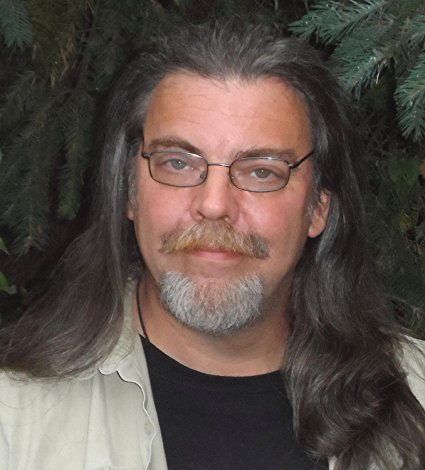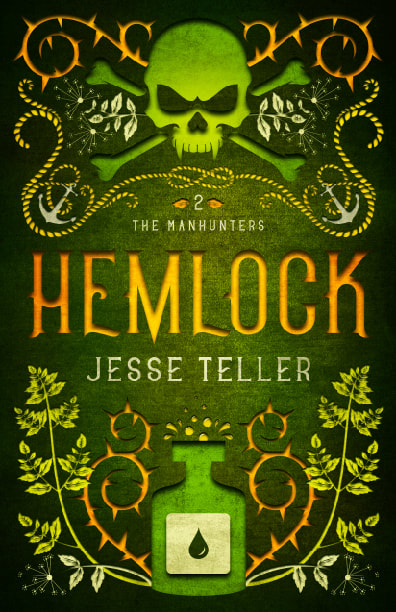People were not doing medieval sheaths right, and I started there. Then it was putting handles on others blades, then making my own- swords were just a logical extension of that process. Very few people at that time were making swords that really felt like the antiques I had handled.
How long have you been at it?
I started researching medieval weapons in high school, but really didn't start making them until well after I left the army- say around 1992.
What was the first piece you made and how does it compare with your current work?
I dunno- some kind of knife, probably, something small. Maybe an eating knife for SCA events or some such. Pretty crude by my current standards.
What is your favorite type of weapon to make and why?
Honestly, I am not sure I have a favorite. I do enjoy the more elaborate, detailed pieces like saexes, Scottish dirks, Viking swords and the like.
How long do each of the different types take to create?
Wow- way too many variables there for a meaningful answer. Most knives take a day or two, most swords take 2-3 days. There are exceptions- sometimes a piece goes very fast or takes longer than anticipated.
What's more fun: designing or making?
There's a difference? I typically start with an idea or type and design as I go.
Are your weapons combat-worthy or are they more for display?
I make real weapons, and they will do anything that can be reasonably expected of a weapon of their type. People use them all the time for uses ranging from cutting trials to martial arts to theatrical use.
What is your all-time favorite piece and why?
Wow- I've made a few thousand blades over the years; I can't remember them all, let alone pick one!
Your craft sounds potentially dangerous. Have you ever been injured? What was the worst injury?
Yes, tools that cut steel don't do good things when they encounter flesh. I suppose the worst was when the buffer grabbed a dirk I was polishing and drove it into my leg about an inch-and-a-half. That was not fun.
What are some common fantasy-writers misconceptions about swords?
Number one would be that they were heavy. Seriously- if the best sword you could make was heavy and clumsy you'd fight with something else. Medieval swords were the end result of about two-thousand years of development; they were sophisticated and very well-made for their use.
Is there anyone in your field that you admire and/or has served as a mentor for you?
There are a lot of people that I admire in this field. Chuck Sweet and Ike Roe gave me some very useful pointers early on, and Gus Trim and I have sort of mentored each other.
In your opinion, what is the best movie for accurate medieval-style combat?
Movie fighting is a very different thing than real fighting, so I tend to judge movie fighting by a different standard. Probably the best representation of sword-fighting I have seen on the big screen was the 1974 'The Three Musketeers.' I thought 'Gladiator' was quite good as well.
What are some of your favorite books?
'Lord of the Rings,' 'Rendevous with Rama,' 'The Deed of Paksenarrion,' are a few, but my all-time favorite might be 'The Paladin' by C.J.Cherryh
I understand you're an author, as well. Tell us about your book(s)!
Yes, my wife Linda and I have co-written several novels and novellas. 'Diaries of a Dwarven Rifleman' and 'Lord of the North' are told from the perspective of dwarves in a medieval fantasy world. 'Rage of Angels' is near-future military SF about what happens when the Earth is attacked by smart aliens. Our novellas 'The Shield Maiden' and 'Tir's Hammer' are historic fantasy. The novellas were published by 47 North as part of the Foreworld series.
You've been a member of various fight-related societies. What is that like?
That's a bit like saying, 'You've driven several cars, what's that like?' Each was its own unique experience.
Okay: power or speed?
Both, if at all possible. If it isn't I'll take speed.
Have you ever sold to anyone famous? What did he/she purchase?
Yes. They bought swords and/or knives.
A careful answer! I like a sword maker who doesn’t name-drop. What's the next rung up-the-ladder in your line of work? What's the next level for you?
I'm not sure; I think I would like to get better at the metal fittings for scabbards.
Do your neighbors ever complain about your hammering or grinding?
Nope.
Yeah, I suppose to would be unwise to provoke a man who owns a houseful of swords and knives. Where can readers go to learn more about your novels?
Best bet would be to look up Michael Tinker Pearce on Amazon.
I’ll just go ahead and post the link here. There’s really a ton of great stuff to see on your author page.
https://www.amazon.com/Michael-Tinker-Pearce/e/B00A6X16X6/ref=sr_ntt_srch_lnk_1?qid=1527350180&sr=8-1
And here’s the link for Michael’s swords, etc.:
http://tinkerswords.com/gallery-of-swords-two/
I’m definitely feeling covetous of many of your pieces. Wow!



 RSS Feed
RSS Feed